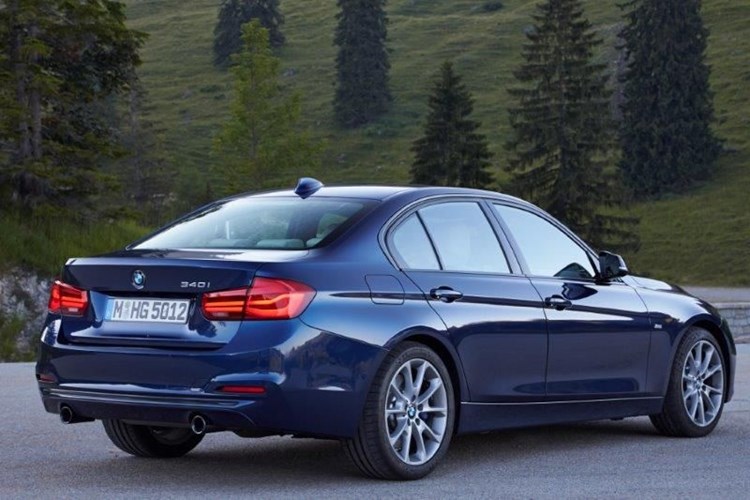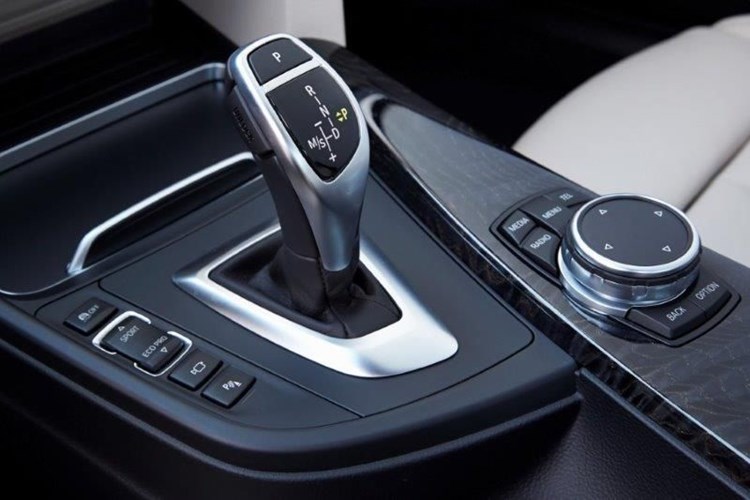To put that into numbers; one in every four BMW's sold is a 3 Series and this particular one, the 320d, is the entry level one with the entry level diesel powerplant. Only that doesn't do this car any justice because it's far more than the sum of those parts.
On the outside
Not a lot has changed in this facelift evolution of the F30, dubbed the F31. New aprons front and rear, with revised air intakes "accentuate the feeling of width" according to BMW. There are also some subtle changes to the headlights. Not sure I quite picked those up (perhaps parked side-by-side would make it more obvious) but one way or another it's a smart looking machine. Subtle, refined, and unmistakably BMW. New wheel designs round off the package.
On the inside
There are a few new materials floating around the' interior, including nice bits of chrome. A few ergonomic changes complete the interior evolution, but BMW has gone a step further in adding new equipment options for added 'personalisation'.
This is perhaps where things fall apart for BMW, although it goes for all the other premium brands as well. Personalisation on a 3 Series involves an endless array of combinations, packages and tick boxes all of which can result in a near doubling of the price tag if you go all out.
The supposedly entry level 320d I had the pleasure of driving for a week was valued at near R750,000. Yes, that's seven hundred and fifty thousand Rand. It may have had a stunning red leather interior, all kinds of internet connectivity, access to BMW's live telephonic helpdesk and every manner of driver assistance to back up the price tag. But I just feel it's all got a bit silly.
[article_gallery]
Behind the wheel
Let's put aside the gumpf and get down to what any BMW is really about, most especially the 3. The company will tell you that this is where it made the biggest advances with the car, which is remarkable considering the F30 was the best car in class with which to tackle a windy bit of tarmac.
The changes aren't so much directed at driver feedback, which I must admit is the biggest downside to the 3 which lacks the feel we've become accustomed to from a BMW. The refinements instead come in the form of suppleness. Even with a fairly large set of rims and pretty low profile run flat tyres the 320d glides along brilliantly. Don't think that the 3 Series can no longer tackle a corner though, the F31 feels lighter and more nimble than before, perhaps even better balanced on the limit and beyond.
Under the bonnet lies a 2.0-litre turbodiesel unit that produces 140kW and 400 torques, while sipping fuel at snail's pace. That's a decent amount of grunt, something that shows once you're up and running.
There's an eight speed auto 'box sending power to the rear wheels. It's smooth as silk and changes gears as fast as you'd like. My only gripe is that there's too much delay at pull off before power is delivered in accordance with your right foot. It makes drifty stuff, that is imperative in any BMW that I'm driving, a bit of a challenge. But that probably isn't a concern for most and would be solved in the petrol powered unit.
Pricing
As previously mentioned, the 320d I was driving hit the price sheet at near R750,000. But the base price is a smidge over R490,000 which is far more palatable. In line with competitors too.
Verdict
This is still the benchmark premium sedan in my books. Mercedes is a very close second with the C Class, and in fact sell more of them than BMW do 3s. But if it's a precision drivers tool that you're after, the Merc doesn't quite deliver the scalpel-like performance of the 3.
Vehicle specs
| Price: | R493,500 |
| Engine: | 1995cc four-cylinder turbodiesel |
| Power: | 140kW |
| Torque: | 400Nm |
| Acceleration: | 7.2 seconds (0-100km/h) |
| Top speed: | 230km/h |
| Consumption: | 4.0l/100km (claimed) |
| Service: | five-year/100,000km maintenance plan |



















